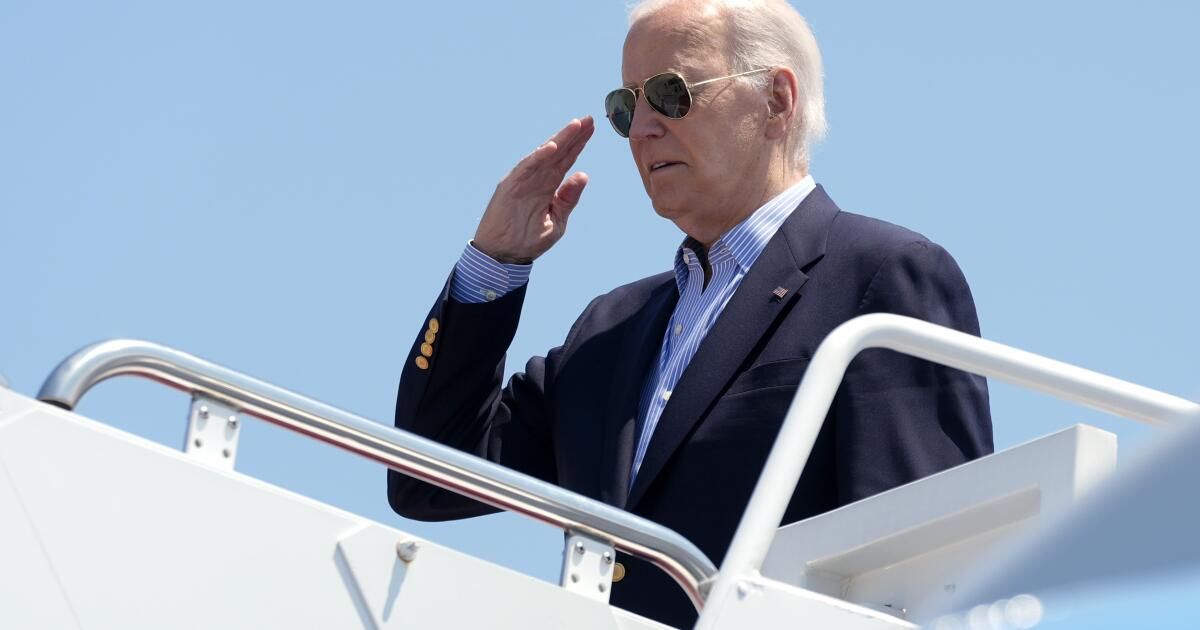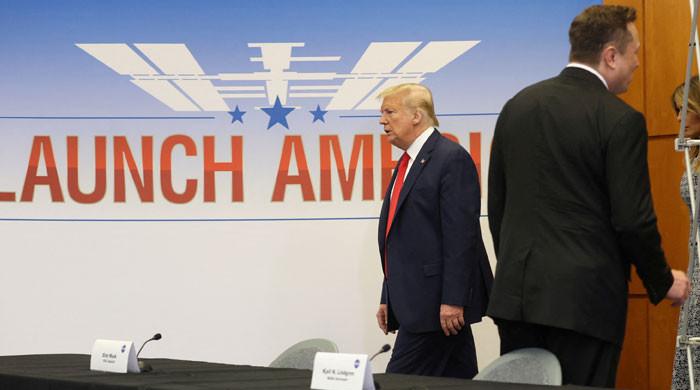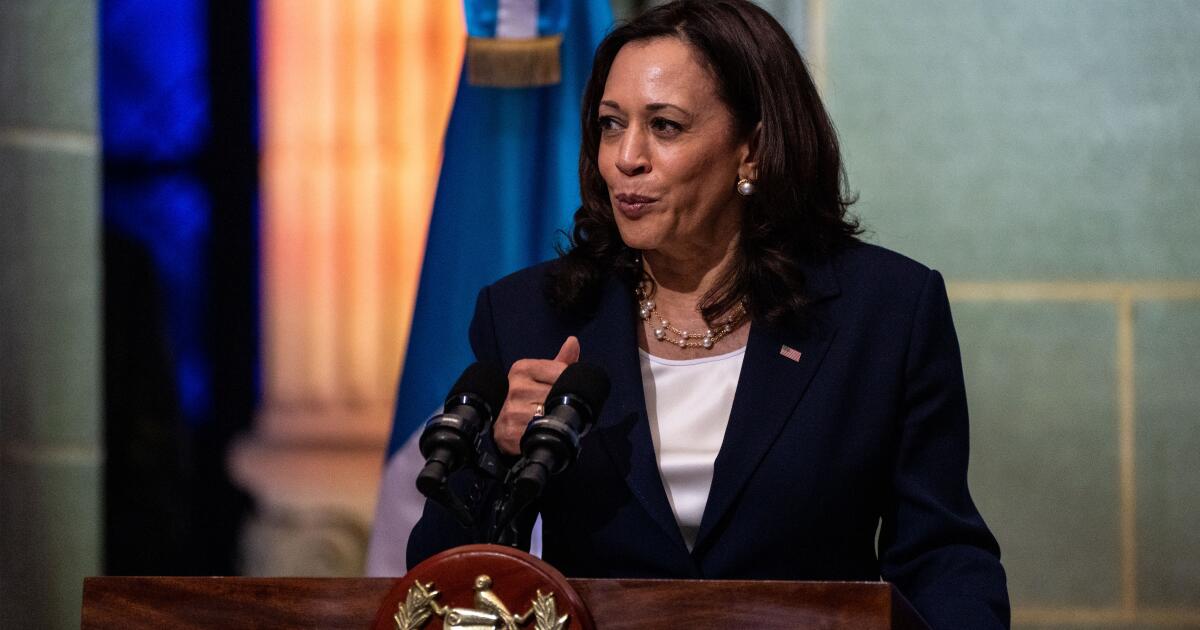It took Joe Biden three campaigns and more than 30 years to win the presidency. It should come as no surprise that he is resisting suggestions that he step down now, just a week after his disastrous debate performance deepened doubts about his ability to win a second term.
He's been in that position before. “The same thing happened in 2020,” he told ABC's George Stephanopoulos on Friday.
The central story of Biden’s career has been a recurring pattern of setbacks, challenges and recoveries. It’s a story he tells himself, his family and his party frequently.
“I’ve been knocked down before and I’ve been written off my entire life,” he told campaign workers Wednesday. “I learned a long time ago that when you get knocked down, you get back up.”
In earlier chapters, Biden’s steadfast refusal to be counted out was a virtue. It propelled his 2020 comeback from early primary failures, when skeptics said he was waging a “zombie campaign,” to victory over then-President Trump.
But Biden's signature defiance appears to be morphing into denial.
In his 22-minute interview with Stephanopoulos, he rejected questions about whether his moments of incoherence in the June 27 debate were signs of a deeper problem.
“I just had a bad night,” the president said five times.
He dismissed numerous polls showing he is likely to lose to Trump, who has been convicted of 34 felonies in New York.
“All the pollsters I speak to tell me it is a risky bet,” he insisted.
When Stephanopoulos pointed out that polls show only 36% of voters have a favorable opinion of Biden, the president responded: “I don't think that's my endorsement.”
And he said he wasn't sure he had watched the debate again to analyze his performance. “I don't think I have,” he said.
It seemed as if Biden's famous resentment had grown so much that it was interfering with his ability to understand why so many Democrats are concerned.
“The president is proud of his record,” David Axelrod, who helped Barack Obama win two presidential elections, posted on social media. “But he is dangerously disconnected from the concerns people have about his ability to move forward and where he stands in this race.”
A handful of Democrats in Congress — five House members, according to a Washington Post tally — have publicly urged Biden to drop out of the race. More than a dozen others have expressed concerns about his ability to run an effective campaign, without explicitly calling for him to drop out.
Behind them are a far larger number of people who decline to be quoted but are concerned that Biden's debate performance was more than just a “bad night” and that the campaign will become a tense observation of his faltering performance.
Former House Speaker Nancy Pelosi (D-San Francisco) bluntly put the fundamental question in a recent television interview.
“Is this an episode or is this a condition?” he asked, referring to Biden’s gaffes during the debate. “When people ask that question, it’s completely legitimate.”
If the answer is that this is an isolated incident, Biden has a chance to convince voters that he can be an effective president for four more years. If the answer is that he has a worsening health problem, he should step down with dignity and honor.
When Stephanopoulos relayed Pelosi’s question to the president, Biden dismissed it. “It was a serious episode,” he said. “There’s no indication of any serious condition.”
But he acknowledged that he has not undergone a full neurological or cognitive evaluation. “No one told me I had to do it,” he said.
“I have a cognitive test every day,” he added, referring to the numerous meetings he attends as president.
Pelosi, who has not urged Biden to withdraw, said both presidential candidates should undergo more rigorous medical screenings.
“Both candidates have to pass whatever tests they want to do, in terms of their mental acuity and their health, both of them,” he said.
Trump, who at 78 is three years younger than Biden and has never released detailed medical records, is unlikely to embrace that idea. So Pelosi’s argument amounted to a plea to Biden, 81, to submit to more testing for the good of his party, whether or not Trump follows suit.
Democrats are hoping for more changes next week.
The first week of polls after the debate showed Biden down about two percentage points, giving Trump an average lead of 3.5% in the national popular vote.
A two-point drop may not seem like much, but Democratic strategists aren’t convinced Biden has bottomed out. “Typically, it takes about two weeks for the effects of an event to kick in,” said one. So Democratic leaders will be anxiously awaiting the results of more polls.
Because of the way electoral votes are apportioned, Biden would need a popular vote lead of at least 2.5% to declare the race close. Trump’s current lead — which, of course, may not hold — leaves the president far behind.
That's one reason Democrats in Congress are increasingly nervous. The other is that a landslide GOP victory could end their chances of holding on to their Senate majority and winning a majority in the House of Representatives.
Such an outcome would not only cost many Democrats their jobs, but would deprive them of the power to stop Trump from turning the federal government into an instrument of his whims.
Members of the Senate and House of Representatives will return to the Capitol on Monday after the July 4 recess. Once Democrats hold their caucus meetings, the trickle of those urging Biden to leave could turn into an avalanche.
The decision, many say, is up to Biden.
If the president does withdraw, party members are already discussing how they might mount a “mini-campaign” in the six weeks before the Democratic National Convention begins in Chicago on August 19.
But if the president stays in office, party leaders will try to avoid a chaotic fight over his nomination at the full convention. The last time a president's nomination was challenged at a convention, when Sen. Edward M. Kennedy tried to oust then-President Carter in 1980, the result was a disaster for the party.
Biden says he stands firm on his stance. “I’m still in the race!” he shouted at a rally in Wisconsin on Friday. “I will beat Donald Trump!”
When Stephanopoulos asked the president if he would drop out if he was convinced he couldn’t win, Biden replied: “If the Lord Almighty comes down and tells me that, I might do that.”
Our political parties usually take a year or more to choose a presidential candidate. It is clear that it will take more than ten days to decide whether to reject the election of one.












